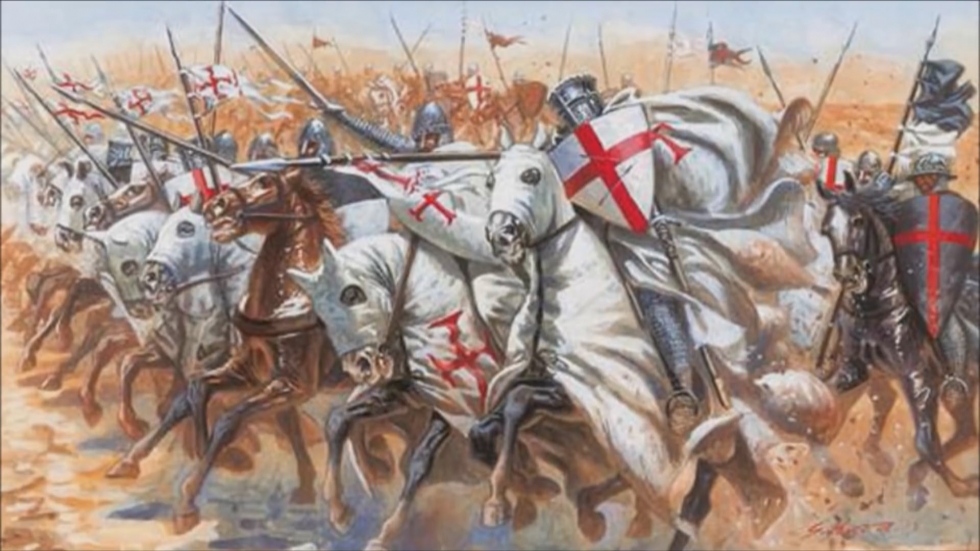Last week’s article looked at the Fourth Revolution, as predicted by Plinio Corrêa de Oliviera in his classic book, Revolution and Counter-Revolution. This article follows up with a look at the Counter-Revolution: our practical response to the disorder we see around us.
Dr Corrêa de Oliviera described the Counter-Revolution as a reaction that “aims to crush” the Revolution in its current manifestation, neither ignoring nor collaborating with it. He noted that opposition to the Counter-Revolution is nothing other than support for the Revolution.
“If the Revolution is disorder, the Counter-Revolution is the restoration of order. And by order we mean the Peace of Christ in the Reign of Christ, that is, Christian civilisation that is austere and hierarchical, fundamentally sacral, antiegalitarian and antiliberal.”
Dr Corrêa de Oliviera points to a principle wherein a damaged organism or entity becomes stronger through its healing process. Thus there are three places in which the Counter-Revolution must shine more strongly than in previous times: in its deep respect for the Catholic Church and the papacy and total opposition to Her enemies; in its respect for hierarchies; and in detecting and rooting out all forms of evil, particularly hidden or nascent forms, exposing and making an example of it.
Three main characteristics of a successful Counter-Revolution are identified: that it is traditionalist, that it conserves the good but does not maintain a status quo which tolerates the Revolution and that it promotes authentic progress but rejects technocracy and utilitarianism. Plinio reminds us that authentic progress recognises that there will always be suffering in this life: any movement that promotes an earthly utopia is suspect.
Plinio Corrêa de Oliviera also describes the attributes of a successful Counter-Revolutionary. He or she must know and understand both the revolution and the Counter-Revolution; must truly love the Counter-Revolution and order; and must make this struggle the lens through which his whole life is lived. He reminds us that no special qualifications are necessary: “St Joan of Arc was no theologian but astounded her judges by the theological profundity of her thoughts….. simple peasants of the Navarre, for instance, or of the Vendée or Tyrol, have often been the best soldiers of the Counter-Revolution.”
One phenomenon experienced by many counter-revolutionaries is loneliness that arises when those who clearly understand the gravity of the situation choose to stay aloof. Plinio Corrêa de Oliviera believed it was essential for these clear thinkers to seek out confreres and build a support network. When several such individuals form bonds, they become a force to be reckoned with. In order to change the hearts and minds of revolutionaries, Dr Corrêa de Oliviera recommends a full-frontal assault:
“The best way to refute it among revolutionaries is to show it in its entirety, whether as regards its spirit and the general outline of its action, or as regards each of its apparently innocent manifestations or maneuvres. To thus snatch away its veils is to deal it the harshest of blows.”
Dr Corrêa de Oliviera makes it quite clear that the most practical action for a counter-revolutionary to take is to revive the notion of good and evil. This includes reminding the world that the Church has a mission to teach and uphold virtue, of the existence of Original Sin and that there are eternal consequences for sin. He recommends that anyone involved in lay-apostolates or any charitable organisation remember to always act in accordance with Catholic principles, never compromising with the Revolution, even in such small details as dress.
This idea becomes particularly important in an apostolate that attempts to attack the Revolution on many fronts and is firmly grounded in principles. For example, an organisation like Family Life International which is firm in its opposition to contraception may never be as popular as a group that focuses on, say, a woman-centred approach to fighting abortion. But it would be wrong of any Catholic organisation to deny the link between abortion and contraception in order to win approval. This is exactly the sort of compromise that helps rather than hinders the Revolution.
Finally, Dr Corrêa de Oliviera reminds us that the soul of the Counter-Revolution is the Church, and our goal is to “build the new Christendom, resplendent with faith, humble with hierarchical spirit, and spotless in purity.” This means that we must exercise our sensus fidei in the face of countless outrages being promulgated within our beloved Church at the present time.
Dr Corrêa de Oliviera ends his book with the following entreaty to Our Lady, our Mediatrix through whom will flow all the graces necessary for the success of the Counter-Revolution:
Unto thee I lift up my eyes, unto thee, who dwellest in the heavens. See how the eyes of servants are fixed on the hands of their masters, the eyes of a handmaid on the hand of her mistress! So our eyes are fixed on Our Lady and Mother, waiting for her to have mercy on us.
This article first appeared at Family Life International

